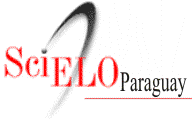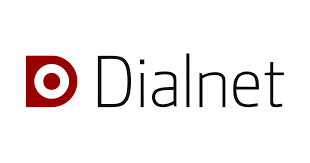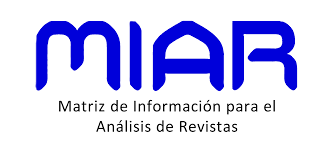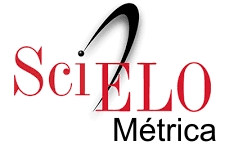Ethical Aspects
a) PUBLICATION ETHICS
The journal respects ethical conduct and good publishing practices – Principles of Transparency and Best Practice in Scholarly Publishing published by the Committee on Publication Ethics (COPE), the Directory of Open Access Journals (DOAJ), the Open Access Scholarly Publishers Association ( OASPA), and the World Association of Medical Editors (WAME), the Codes of Conduct published by COPE, https://publicationethics.org/core-practices
1. Memorias del IICS
The journal Memorias del Instituto de Investigaciones en Ciencias de la Salud, with registration: ISSN 1817-4620 printed version - ISSN 1812-9528 online version, is the official publication organ of the INSTITUTO DE INVESTIGACIONES EN CIENCIAS DE LA SALUD (IICS) of the National University of Asunción (UNA), for the publication of scientific works.
Objective: Evaluate and publish high-quality scientific research works in the area of health sciences, which help solve relevant problems in the different disciplines of this science.
Mission: Publish and disseminate scientific topics in the form of original articles, current affairs, case reports, short communications, review articles, letters to the editor, from national and international researchers in the health area, which are available in a electronic platform for scientists from Paraguay and the world.
Thematic content: This journal publishes original contributions in the area of health such as: clinical medicine, biomedical research (application of biology and physiology to medicine), microbiology, molecular biology, dentistry, nursing, nutrition, public health, biotechnology in health, Genetics, Biochemistry and other areas related to health, which are available on an electronic platform for scientists in Paraguay and the world.
2. Peer review
For the acceptance or rejection of articles, an evaluation process is necessary that includes:
A first review, which remains in the hands of the editors, in which the importance, relevance and depth of the work is determined, whether the manuscript corresponds to the editorial line, adheres to the IICS Report standards and meets the general criteria. of publication.
A second double-blind review, which is entrusted to at least two specialists (peer reviewers). If the opinions are contradictory, it is submitted to the Editorial Committee for consideration or a third evaluation is requested.
The opinion can be acceptance, rejection or conditioning the modifications suggested by the reviewers.
Any decision is communicated to the author in writing, within a period of two to three months from the date on which the original is received. If the work is conditioned, the new version must be sent within the period indicated, which in no case may exceed 30 days.
3. Ownership and management of information
The ownership and publication of the journal is in charge of the Instituto de Investigaciones en Ciencias de la Salud (IICS-UNA).
4. Governing body
Memorias del IICS is formed first by the Instituto de Investigaciones en Ciencias de la Salud, UNA, later by the Editorial Committee, headed by the Editor-in-Chief.
5. Editorial team and contact information
The editorial team is made up of: Editor in Chief, Associate Editors, Editorial Advisor, National Scientific Committee, International Scientific Committee and Editorial Production, https://revistascientificas.una.py/index.php/RIIC/about/editorialTeam
Contact information at: https://revistascientificas.una.py/index.php/RIIC/about/contact
6. Copyright and licenses
Authors own the rights to their manuscripts.
All content of this magazine is distributed under a Creative Commons License of the BY attribution type.
7. Cost to authors
Memorias del IICS does not charge authors for the submission and publication of their articles.
8. Process for identifying and addressing allegations of research misconduct
In the event of allegations of research misconduct related to a published article, the Journal will follow the guidelines of the COPE (Committee on Publication Ethics).
The reviewers and the Editorial Team will identify the documents involved in the publication misconduct to process the corresponding complaint, they will also contact the corresponding authors and offer them the opportunity to respond to the complaint.
The Editorial Team will consider the possibility of withdrawing the publication in case of misconduct.
9. Publication ethics
About authorship and contribution. Only those who have participated from an intellectual point of view in the final version of the text are required to be mentioned as authors.
The authorship acceptance criteria must be accurately reported, which normally require significant contributions in the conception and/or development of the research and/or writing of the manuscript and necessarily in the review and approval of the final version. Furthermore, and as an expression of transparency and recognition of the different contributions of the researcher(s) to a manuscript and to the reported research, the manuscript must accurately express at the end of the text the specific contributions of each of the authors. The IICS Reports magazine adopts the CRediT (Contributor Roles Taxonomy) specification system, https://casrai.org/credit/
Conflict of interests. When there is any relationship between the authors of an article and any public or private entity, from which a conflict of interest could arise, this circumstance must be communicated in a separate letter to the Editor, who guarantees its confidentiality. If the article is accepted for publication, the most convenient way to communicate this information to readers will be agreed between the authors and the Editor.
Plagiarism detection: In the preliminary review process, technological tools will be used to detect plagiarism in the works sent to the journal (currently the PlagScan program https://www.plagscan.com/es/ is used). If plagiarism is proven, the article will be rejected regardless of the editorial stage it is in.
Data sharing and reproducibility: Confidential access to the primary data necessary to reproduce the article may be requested in order to verify the results. The journal encourages authors to cite publicly available research data in their reference lists. References to data sets must include a persistent identifier. We encourage making research data available under open licenses for unrestricted reuse.
Discussions and corrections: After the articles have been published, in case of need or detection of errors, the authors may request correction through the email of the journal's Editorial Board: editorial@iics.una.py .
10. Publication schedule
Starting in 2023, it adopts the system of publishing articles in a continuous flow, without pre-established periodicity.
11. Access
All materials published in this journal are freely available and free of charge to the authors. Provides immediate open access to your content.
12. File
The IICS Memories journal preserves all the documents it publishes electronically in different formats, allowing digital access to the documents and future transfer when necessary.
The backup of OJS information is carried out on a daily basis, incremental and differential, which allows access to all modified or deleted information.
If an equipment outage occurs due to damage, breakdown or other incident, the magazine has a backup server with the same configuration of the downed service. This allows replacement of faulty equipment. In addition, there is a data synchronization system from the backup server to the backup server.
13. Sources of income
The journal does not charge for sending or publishing articles, it is financed with resources from the Instituto de Investigaciones en Ciencias de la Salud, UNA.
14. Advertising
The magazine does not advertise on the website.
15. Direct marketing
For the dissemination and visibility of the articles published in the magazine, social networks are used: Facebook and Twitter, https://revistascientificas.una.py/index.php/RIIC/index
Direct communication to authors about the publication of their articles.
B) ETHICS IN HUMAN BEINGS AND ANIMALS
When it comes to work that includes experiments on human beings, respect procedures that comply with the ethical standards of the Council of International Organizations of Medical Sciences (CIOMS) https://cioms.ch/wp-content/uploads/2017/12/CIOMS-EthicalGuideline_SP_INTERIOR-FINAL.pdf - https://cioms.ch/wp-content/uploads/2017/01/WEB-CIOMS-EthicalGuidelines.pdf and from the Helsinki declaration of 1975, 6th September 2022, https://www.wma.net/policies-post/wma-declaration-of-helsinki-ethical-principles-for-medical-research-involving-human-subjects/ Do not use patients' names or their initials or their corresponding number in the hospital, especially in the illustrative material. Descriptions, photographs or other details that help identify the patient cannot be published unless the information is essential for publication, in which case the patient, parent or legal guardian must express their consent in writing.
In the case of experiments with animals, indicate that the basic international guiding principles applicable to biomedical research with animals, developed by the Council for International Organizations of Medical Sciences (CIOMS) and the International Council of Science and Technology, have been complied with. Laboratory Animals (ICLAS) https://grants.nih.gov/grants/olaw/Guiding_Principles_2012.pdf
The works must mention in the text that the protocol was approved by the Ethics Committee of the institution where they were carried out or another higher one, indicating the approval code of the work, and that it was obtained the informed consent of the study subjects or their guardians.














